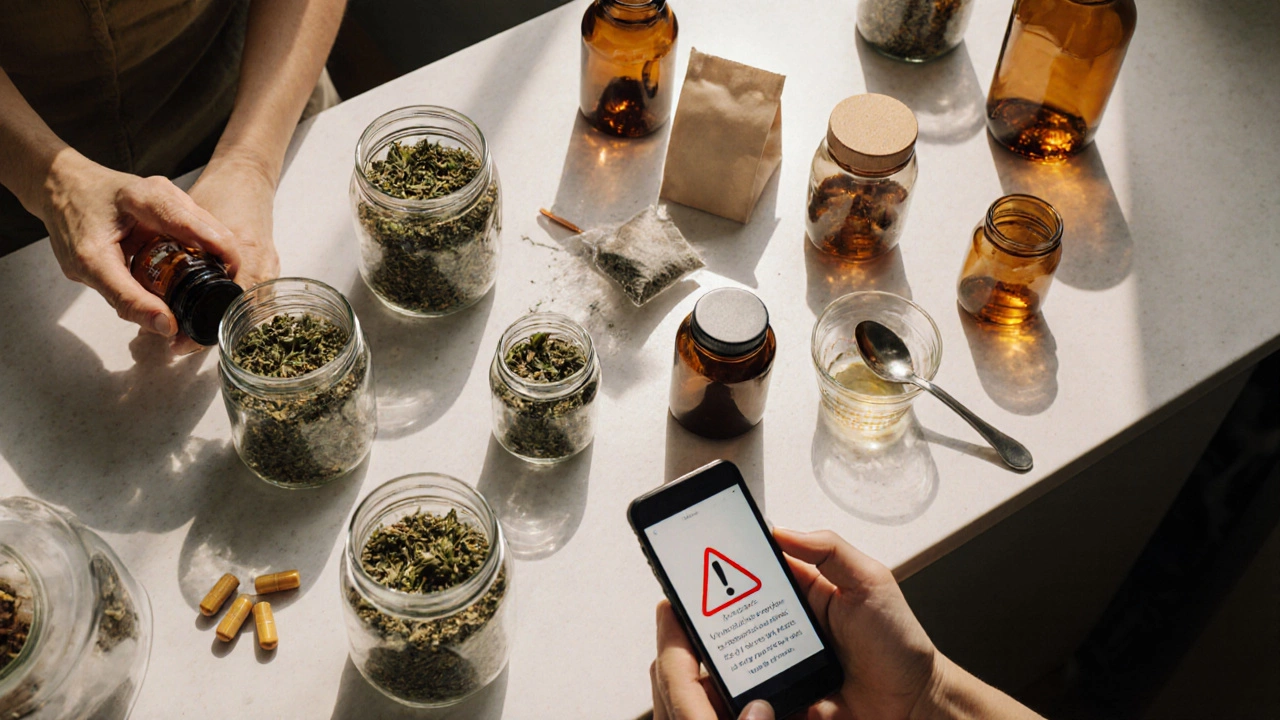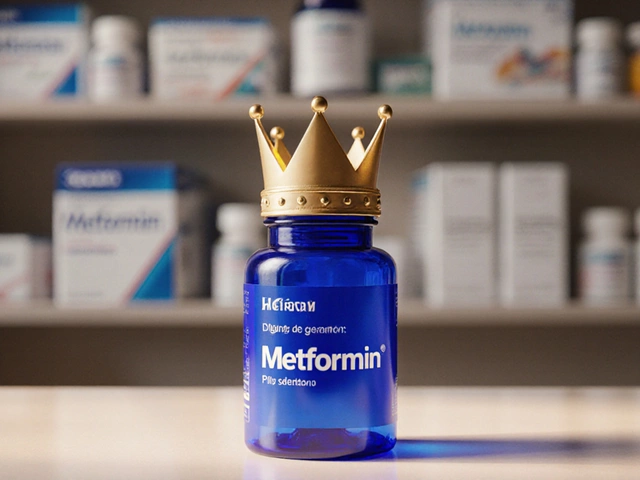Herb Overdose
When dealing with Herb Overdose, the condition caused by taking too much of a medicinal plant or herbal product. Also known as herbal toxicity, it can affect the stomach, liver, kidneys and even the heart. herb overdose is more common than you think, especially when people assume “natural = safe.” Understanding how it happens helps you avoid the nasty side effects.
Key Players in Herbal Safety
One of the biggest contributors is Herbal Supplements, concentrated extracts taken as capsules, powders or teas. They promise energy, weight loss or joint relief, but without clear dosage instructions they can quickly turn into a poison. Another related player is Ayurvedic Medicines, traditional Indian formulations that combine herbs, minerals and sometimes animal products. When these formulas are mixed, the risk of overdose rises because many ingredients have overlapping active compounds.
Both herbal supplements and ayurvedic medicines link directly to Kidney Toxicity, damage to the kidneys caused by harmful substances in excess. The kidneys filter waste; overload them with toxic plant alkaloids and they can fail. This connection shows why dosage matters: a safe dose of one herb may become dangerous when combined with another that also strains the kidneys.
In addition to kidneys, the liver often bears the brunt. Many herbs contain hepatotoxic compounds that, in large amounts, trigger inflammation or even failure. The semantic triple here is: Herb Overdose requires careful dose calculation to protect liver health. Practically, this means reading labels, consulting a qualified practitioner, and never exceeding suggested servings.
Another crucial entity is Dosage Guidelines, the recommended amount of an herb based on weight, age and health status. Following these guidelines reduces the chance of overdose, but many buyers ignore them, assuming “a little more can’t hurt.” The reality is that every herb has a therapeutic window – a range where it works without causing harm. Exceeding that window triggers the toxic effects we’re warning about.
Symptoms of herb overdose vary. Early signs include nausea, vomiting, dizziness, and abdominal cramps. As toxicity progresses, you might notice rapid heartbeat, confusion, or dark urine indicating kidney stress. The triple Excessive herb intake leads to systemic symptoms and organ damage captures this progression. Spotting these signs early and stopping the herb can prevent permanent damage.
Prevention hinges on three actions: first, verify the source of any herbal product; second, stick to the manufacturer’s dosage or a healthcare professional’s advice; third, monitor how your body reacts. If you’re already using multiple herbal supplements or ayurvedic formulas, keep a simple chart of ingredients and doses. This habit makes it easier to spot overlapping compounds that could push you into overdose territory.
When an overdose is suspected, seek medical help right away. Doctors may run blood tests to check liver enzymes and kidney function, then administer activated charcoal or supportive care. Knowing the specific herb involved helps clinicians choose the right antidote or treatment plan.
Overall, understanding the relationship between herbal supplements, ayurvedic medicines, dosage guidelines and organ toxicity empowers you to enjoy the benefits of natural remedies without the hidden danger of overdose. Below you’ll find articles that dive deeper into each of these topics, from safe buying tips for herbal supplements to detailed looks at kidney‑friendly herbs and the science behind ayurvedic safety. Explore the collection to learn how to stay healthy while using nature’s pharmacy responsibly.





